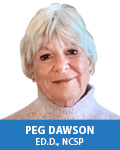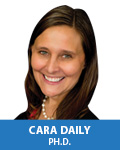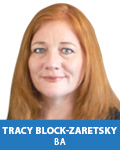The General and Special Education Summit: Behavioural Challenges, Mental Health and Brain-Based Learning
Presented by
Gabor Maté, M.D.
and Steven G. Feifer, D.Ed., ABSNP
and Peg Dawson, Ed.D., NCSP
and Kathy Morris, M.Ed.
and Cara Daily, Ph.D.
and Jay Berk, Ph.D.
and Linda J. Burkhart, BS
and Kelli Sandman-Hurley, Ed.D
and Tracy Block-Zaretsky, BA
Monday, December 2, 2019 – Wednesday, December 4, 2019
|
Richmond, bc
Download Brochure (.PDF)
 Important Notice:
Important Notice:
Online registration is now CLOSED for this conference. You can arrive up to one hour early to register at the door.
Please note, Workshop #6 has been cancelled.
Please note, we are looking for workshop aides for this event.
For more information, please follow this link: http://www.jackhirose.com/help-frequently-asked-questions/workshop-aide-program/
 Additional Information:
Additional Information:
Please note, there have been changes made to the line up. Please see the event page for the most up to date information.
Date & Location
New Conference Format
- 10 Internationally Renown Experts
- 11 Full Day Workshops
TOPICS INCLUDE:
- Peer Orientation: Why Children are Stressed, Why Parents and Teachers are Disempowered and How to Restore a Healthy Balance in Adult-Child Relationships
- Multi-Model Communication and Learning Strategies for Children Who Face Significant Challenges
- Stress Trauma and Learning: How to Develop Brain-Based Interventions
- Strengthening Executive Skills to Promote School Success
- Reading, Writing and the Brain: Developing Effective Interventions
- High Functioning Autism
- 25 Self-Regulation Strategies and Skills for Children and Adolescents
- Mental Health Issues in the Classroom
- Dyslexia: What it is, What it is Not and How to Help Students
IMPORTANT, PLEASE READ CAREFULLY
- Each workshop is a full day course from 9:00am – 4:00pm
- Space in each workshop is limited, please register early to reserve your seat
- Changes to participant info provided during registration, including workshop selection, may be subject to an admin fee
- Participants are permitted to change workshops on the day of the conference at no charge, subject to seating availability
- Seating availability will be determined after the session begins
- Seat sharing is not allowed, multi-day options are for one workshop participant
- Groups do not need to attend the same workshop to qualify for the group rate, must attend all 3 days
- Please read the complete terms and conditions here
Jack Hirose interviews Steven Feifer, D.Ed., ABSNP
Who Should Attend
Education and Clinical Professionals: K–12 Classroom Teachers, School Counsellors/Psychologists, Learning Assistance/ Resource Teachers, School Administrators, School Paraprofessionals including Special Education Assistants, Classroom Assistants and Childcare Workers. All other professionals who support students including but not limited to: Nurses, Social Workers, Psychologists, Clinical Counsellors, Family Therapists, Occupational Therapists, Speech Language Pathologists, Addiction Counsellors, Youth Workers, Mental Health Workers, Probation Officers, and Early Childhood Educators.
Parents, Caregiver, Foster Parents, Grandparents, and Extended Family raising a child.
Day 1 – December 2, 2019
Workshop #1: Peer Orientation: Why Children are Stressed, Why Parents and Teachers are Disempowered and How to Restore a Healthy Balance in Adult-Child Relationships
Presented by
Gabor Maté, M.D.
9:00am - 4:00pm December 2, 2019
COURSE DESCRIPTION:
Why Children are Stressed, Why Parents and Teachers are Disempowered and How To Restore a Healthy Balance in Adult-Child Relationships.
Parenting and teaching are much harder these days than they used to be, and than they should be. In Hold On To Your Kids, Dr. Gabor Maté (with developmental psychologist Gordon Neufeld) forward a provocative and important view of why this is, and what we can do to counteract it.
The root of the problem is that children no longer look to adults for emotional support, the teaching of values, or the modeling of behaviour. Peer orientation refers to the tendency of children and youth to look to their peers for direction: for their sense of right and wrong, codes of conduct, and their very identity. Peer orientation undermines family cohesion, sabotages healthy development and fosters an aggressive and prematurely sexualized youth culture. For parents already challenged by the demands of our multitasking world and stretched by stark economic realities, peer orientation further complicates the task of child rearing. Children were never meant by nature to be in a position where they are so dominant in influencing one another. This state of affairs may be the norm today, but it’s neither natural nor healthy. Historically it is a very new development, due to economic and social influences prevalent since World War II, resulting in a deep undermining of adult-child connections.
Show more
This workshop aims at restoring parenting to its natural intuitive basis and the adult-child relationship to its rightful preeminence. The concepts, principles and practical advice articulated will empower parents, teachers and other adults who play a nurturing role to be for children what nature intended: the true source of contact, security and warmth. Parents must regain their natural authority, without coercion, punishment and artificial consequences. Children need to be protected from becoming lost in the emotionally barren and culturally backward world of peer orientation.
orientation.

Gabor Maté (pronunciation: GAH-bor MAH-tay) is a retired physician who, after 20 years of family practice and palliative care experience, worked for over a decade in Vancouver’s Downtown East Side with patients challenged by drug addiction and mental illness. The…
→ Read more
More information: drgabormate.com
Workshop #2: Multi-Model Communication and Learning Strategies for Children Who Face Significant Challenges Including: Severe Multiple Disabilities and Children on the Autism Spectrum (Day 1)
Presented by
Linda J. Burkhart, BS
9:00am - 4:00pm December 2, 2019
COURSE DESCRIPTION:
Children who face significant physical and multiple challenges as well as those children on the more severe end of the autism spectrum, often struggle to access communication, interaction and learning. Some of these children may have very little control of moving their bodies. Others have difficulty taking in and processing sensory information from their environment. Many find communication and interaction skills challenging.
This two day presentation will address questions such as: What are we learning from brain research that can help us understand how children learn? How do we motivate children and provide opportunities for active learning? What strategies help give these children a sense of control and facilitate interaction and communication? How does the child on the severe end of the autism spectrum perceive the world and how does this impact learning and communication? How does Cortical Visual Impairment impact learning?
This workshop will introduce the concept of providing a receptive aided language learning environment, and demonstrate how learning alternative and augmentative forms of communication can and should parallel the developmental process that typical children go through in learning speech. We will also take a brief look at Pragmatic Organization Dynamic Display (PODD) Communication books developed by Gayle Porter, in Melbourne, Australia. (Please note: This is not an official Introductory PODD course, which would require two full days training on just that topic.)
Show more
This workshop is for anyone working with young children or children functioning at young levels, who have difficulty communicating and interacting with others. This includes children with significant physical and multiple challenges and/or young children on the more severe end of the autism spectrum. Information shared will be useful to parents, teachers, speech therapists, occupational therapists, physical therapists and other supportive personnel.
COURSE OBJECTIVES:
- Discuss how the brain develops and describe implications for teaching and learning for those students who are developing differently
- Describe strategies for increasing motivation, cognitive engagement, and active participation in the learning process.
- Discuss a variety of ways to adapt materials to facilitate cognitive and communication skills in young children.
- List characteristics of students who have cortical visual impairment along with other multiple disabilities, and describe useful strategies to help develop vision and communication skills
- Describe strategies that help the child who are on the severe end of the autism spectrum, develop skills in receptive, expressive and cognitive processing language skills.
- Describe how to utilize what is known about how typical children learn language and apply these principles to creating a multi-modal communication learning environment for children who face complex challenges
- Briefly Explain how the use of Pragmatic Organization Dynamic Display (PODD) provides an appropriate tool for children at the beginning stages of language development and describe how to implement this in natural contexts

Linda Burkhart, BS, Special Education Consultant, Technology Integration Specialist is an internationally known leader in the field of assistive technology for children who face severe challenges. She has developed numerous adapted devices, activities, and innovative implementation strategies. She is…
→ Read more
Workshop #3: Stress, Trauma and Learning: How to Develop Brain-Based Interventions
Presented by
Steven G. Feifer, D.Ed., ABSNP
9:00am - 4:00pm December 2, 2019
COURSE DESCRIPTION:
This workshop will explore the neural underpinnings of stress, trauma, and emotional dysfunction in children and its relative impact upon learning. Environmental deprivation, poverty, childhood abuse, witnessing violence, and parental neglect can impact both cognitive and social-emotional development in children. Schools can enhance emotional wellness through early prevention efforts, appropriate assessment strategies, and an improved school climate to foster emotional growth for all children. The presentation will conclude with a discussion on how every school can become a “trauma-informed” school to better meet the diverse needs of all learners. Specific classroom accommodations, school-based interventions, and targeted coping strategies will be presented for at-risk students.
Show more
COURSE OBJECTIVES:
- Discuss the prevalence of trauma and stress for school aged children, as well as the various sources from which trauma can occur.
- Explore key brain regions that are impacted when students experience trauma, and the subsequent effect on academic and social skills’ development.
- Review five essential features toward the development of a “trauma informed” school.
- Review various trauma screening tools and discuss numerous steps that psychologists and educators can take to identify and intervene with students experiencing trauma in their lives.

Steven G. Feifer, D.Ed., ABPdN is dually trained as both a nationally certified school psychologist and board certified pediatric neuropsychologist, having completed research stints at the National Institutes of Health. Dr. Feifer has earned numerous distinctions throughout his career including…
→ Read more
Day 2 – December 3, 2019
Workshop #4: Multi-Model Communication and Learning Strategies for Children Who Face Significant Challenges Including: Severe Multiple Disabilities and Children on the Autism Spectrum (Day 2)
Presented by
Linda J. Burkhart, BS
9:00am 4:00pm December 3, 2019
COURSE DESCRIPTION:
Children who face significant physical and multiple challenges as well as those children on the more severe end of the autism spectrum, often struggle to access communication, interaction and learning. Some of these children may have very little control of moving their bodies. Others have difficulty taking in and processing sensory information from their environment. Many find communication and interaction skills challenging.
This two day presentation will address questions such as: What are we learning from brain research that can help us understand how children learn? How do we motivate children and provide opportunities for active learning? What strategies help give these children a sense of control and facilitate interaction and communication? How does the child on the severe end of the autism spectrum perceive the world and how does this impact learning and communication? How does Cortical Visual Impairment impact learning?
This workshop will introduce the concept of providing a receptive aided language learning environment, and demonstrate how learning alternative and augmentative forms of communication can and should parallel the developmental process that typical children go through in learning speech. We will also take a brief look at Pragmatic Organization Dynamic Display (PODD) Communication books developed by Gayle Porter, in Melbourne, Australia. (Please note: This is not an official Introductory PODD course, which would require two full days training on just that topic.)
Show more
This workshop is for anyone working with young children or children functioning at young levels, who have difficulty communicating and interacting with others. This includes children with significant physical and multiple challenges and/or young children on the more severe end of the autism spectrum. Information shared will be useful to parents, teachers, speech therapists, occupational therapists, physical therapists and other supportive personnel.
COURSE OBJECTIVES:
- Discuss how the brain develops and describe implications for teaching and learning for those students who are developing differently
- Describe strategies for increasing motivation, cognitive engagement, and active participation in the learning process.
- Discuss a variety of ways to adapt materials to facilitate cognitive and communication skills in young children.
- List characteristics of students who have cortical visual impairment along with other multiple disabilities, and describe useful strategies to help develop vision and communication skills
- Describe strategies that help the child who are on the severe end of the autism spectrum, develop skills in receptive, expressive and cognitive processing language skills.
- Describe how to utilize what is known about how typical children learn language and apply these principles to creating a multi-modal communication learning environment for children who face complex challenges
- Briefly Explain how the use of Pragmatic Organization Dynamic Display (PODD) provides an appropriate tool for children at the beginning stages of language development and describe how to implement this in natural contexts
Workshop #5: Strengthening Executive Skills to Promote School Success
Presented by
Peg Dawson, Ed.D., NCSP
9:00am - 4:00pm December 3, 2019
COURSE DESCRIPTION:
Executive skills are sometimes called “the hidden curriculum.” They are skills such as task initiation, sustained attention, working memory, planning, organization, and goal-directed persistence that are absolutely critical to school success, yet curriculum standards seldom if ever explicitly reference these skills. Neuroscientists now tell us that these skills take a minimum of 25 years to reach full maturation, and the course of that development is influenced by experience and exposure, by modeling, practice, and direct instruction. This workshop will provide participants with a framework for understanding these key skills, how they develop in diverse populations, and how to support executive skills by embedding them into classroom routines and lessons and by tailoring interventions to meet the needs of individual students and classrooms.
Show more

Dr. Peg Dawson: In over 40 years of clinical practice, Dr. Peg Dawson has worked with thousands of children who struggle at home and in school. At the center of their struggles are often weak executive skills. Along with her…
→ Read more
Workshop #6: Is it Disability Behaviour or Just Disruptive Behaviour - CANCELLED
Presented by
Rebecca Moyes, M.Ed.
9:00am - 4:00pm December 3, 2019

Rebecca Moyes, M.Ed., is a former general education teacher in public and private schools. She has served on Pennsylvania Governor Ridge’s Task Force for Autism and was a member of the PA SAFE Project for Verbal Behaviour. She is the author…
→ Read more
Workshop #7: Reading, Writing and the Brain: Developing Effective Interventions
Presented by
Steven G. Feifer, D.Ed., ABSNP
9:00am - 4:00pm December 3, 2019
COURSE DESCRIPTION:
This workshop will examine reading and written language disorders from a brain-based educational perspective, and classify each disorder into distinct subtypes. There will be a detailed discussion linking each learning disorder’s subtype with scores of evidence based interventions.
Four universal truths when teaching reading will be shared, in addition to five essential steps for effective written language instruction. There will also be a discussion on new research developments revealing that brain chemistry and neural pathways can actually be altered based upon effective interventions. We explore the neuropsychological underpinnings of the writing process to assist educators and mental health professionals in both diagnosing and remediating written language disorders in children.
The ability to generate and produce written language requires multiple linguistic skills involving both phonological and orthographical functioning (the elementary components of language), word retrieval skills, executive functioning skills to organize inner thoughts and ideas, and working memory to hold our thoughts in mind long enough for effective motor skills output.
Lastly, the Feifer Assessment of Reading (FAR) battery, a comprehensive and innovative new reading test designed to examine the underlying cognitive and linguistic processes that supports proficient reading skills will be introduced to both educators and mental health professionals. The instrument is unique in that it helps school teams determine the specific subtype of reading disorder, features a dyslexia screener, and also yields numerous intervention strategies as well.
Show more
COURSE OBJECTIVES:
- Examine the current literacy rates in the United States and Canada and the effectiveness of the No Child Left Behind legislation
- Discuss the four universal truths of reading and explain why relying solely upon IQ scores, or a curriculum-based measurement approach, can be misleading when identifying reading disorders in children
- Discuss four subtypes of reading disabilities from a brain-behavioural perspective, and link scores of evidenced-based interventions and relevant classroom strategies to address each subtype
- Introduce a brain-based educational model of reading and written language disorders by classifying each disability into basic subtypes, with specific remediation strategies linked to each subtype
- Introduce the Feifer Assessment of Reading (FAR) battery as a more viable means to both assess and remediate reading disabilities in children from a brain-based educational perspective
- Introduce the 90 minute LD evaluation measuring eight core constructs associated with learning disorders in children, including the Feifer Assessment of Reading (FAR) Battery
- Develop comprehensive assessment batteries for specific learning disorders when presented with various clinical case presentations
- Discuss the neural architecture responsible for written language development in children and learn key brain regions responsible for the organization and production of writing skills
- Discuss three specific subtypes of writing disorders, with particular emphasis on how “frontal lobe” processes such as working memory and executive functioning impact each subtype
- Discuss five essential steps for effective written language instruction, and learn intervention strategies for written language disorder subtypes
Day 3 – December 4, 2019
Workshop #8: High Functioning Autism: Proven and Practical Interventions for Challenging Behaviour in Children and Adolescents
Presented by
Cara Daily, Ph.D.
9:00am - 4:00pm December 4, 2019
COURSE DESCRIPTION:
This intensive, one-day hands-on workshop provides evidence-based behavioural intervention strategies, essential treatment tools, and successful psychosocial techniques to teach new skills to children, adolescents and young adults with high-functioning autism (HFA). Dr. Daily will provide interesting case studies, demonstrations, and activities that will help you better understand high functioning autism and give you practical intervention techniques for social success, improved mood, positive behaviour changes, and overcoming challenging co-occurring behaviours.
Join autism expert and author, Cara Daily, PhD, BCBA, and learn how to integrate the latest research on brain development, cognitive-behavioural therapy, and behavioural interventions in your work with children with autism (0-25 years).
Show more
You will walk away with up-to-date evidenced-based strategies to teach new skills and behaviours related to co-occurring deficits such as:
- Social-Communication
- Sensory
- Anxiety/Rigidity
- Oppositional Defiant Disorder
- Meltdowns
- Psychotropic medications
- Social-Pragmatic Language Disorder
- ADHD/Executive Functions
- Obsessive-Compulsive Disorder
- Sex Education
- Depression
- Self-Help Skills
COURSE OBJECTIVES:
- Screen and diagnose autism using DSM-5® and ICD-10.
- Differentiate between abilities that are intact versus impaired in the brain with autism.
- Compare and evaluate empirically validated strategies for children with high functioning autism.
- Evaluate and change your communication style to improve back and forth conversations with your clients with HFA.
- Address sexualized behaviours by teaching your students/clients developmentally appropriate sex education.
- Suggest sensory based relaxation techniques to your students/clients with HFA to reduce anxiety.
- Promote visual strategies to assist with executive functioning deficits, such as planning and organizing.
- Determine the 2 major functions of a behaviour using case examples.
- Reevaluate certain punishment techniques and the ethical dilemmas in using them.
- Recognize and understand psychosocial interventions for anxiety, depression, and OCD
- Recognize the potential side effects of psychotropic medication that can mimic or cause behavioural issues related to HFA.

Cara Marker Daily, PhD, BCBA, is a licensed psychologist and Board Certified Behavior Analyst with over 20 years of experience providing assessment and treatment for children, adolescents and young adults with autism in the home, school, hospital and community settings. She…
→ Read more
Workshop #9: 25 Self-Regulation Strategies and Skills for Children and Adolescents
Presented by
Kathy Morris, M.Ed.
9:00am - 4:00pm December 4, 2019
COURSE DESCRIPTION:
Children and adolescents who struggle with self -regulation often look like those who just aren’t paying attention, have difficulty with emotional control, blurting out answers, have difficulty making transitions and/or purposely not controlling themselves. They may be unaware of the connections of their behaviour and the consequences of the behaviour. If you don’t have self-regulation, you may act out, get placed in timeout, sent to the principal’s office, then miss important learning time. A downward spiral occurs as the student gets more upset and continues to act out when given punitive consequences.
Executive functioning changes radically over the first few years, continues to improve quickly throughout adolescent years and, finally, during early adulthood years, the frontal lobes and prefrontal lobes are activated and connected to other regions of the brain. Executive function skills can be trained. It’s just like going to the gym. The more one practices these strategies for metacognition and self-regulation, the neural connections will be strengthened.
The beginnings of executive function and self-regulation skills appear in the neurotypical brain around 4 years of age. However, what happens when the prefrontal lobe and frontal cortex are compromised due to faulty brain wiring and sensory traffic jams, such as seen in autism spectrum disorders, attention deficit disorders, anxiety disorders, mood disturbances, behaviour disorders, post-traumatic disorders, poverty, attachment disorders?
This one-day seminar will address practical strategies that meet the needs of those children and adolescents who are impacted by these differences in their brain maturation. However, the participant will realize that these strategies apply to ALL students! The purpose is to provide practical tools for those clinicians, educators, therapists or parents who are directly involved in working with children and adolescents. This seminar is designed for those who are “working in the trenches.”
Show more
COURSE OBJECTIVES:
- Participant will be able to label metacognitive and self-regulation strands for executive functioning components.
- Participant will be able to list visual strategies that support communication, social and behaviour skills
- Participant will be able to troubleshoot and identify strategies from case study examples of children/adolescents who have difficulty with inhibitory control, working memory, emotional control, mental rigidity
- Participant will be able to create at least three strategies to meet the needs of an individual student identified who lacks self-regulation.
- Participant will be able to discriminate functions of behaviour and determine if it is a tantrum or a meltdown.
- Participant will be able to identify and intervene when student is overstimulated and has sensory breakdowns.
- Participant will be able to determine which techniques to use to prevent, intervene, or stop targeted behaviours.
- Participant will be able to implement a “system” rather than a person dependent intervention.
COURSE OUTLINE:
Drawing on over 45 years of professional experience, Kathy will lead you through dynamic discussions, video case examples and demonstrations providing dozens of strategies (30+) you can implement immediately with children/adolescents in any setting. Walk away with an array of practical strategies for:
- Preventing and de-escalating meltdowns
- Teaching and promoting visual supports when mental rigidity is apparent
- Providing instructional consequences/replacement behaviours
- Developing self-control and self-management skills
- Addressing inhibitory control……..and more!

Kathy Morris, M.Ed., has been a speech therapist, teacher for self-contained programs (including students with autism, severe behavioural difficulties, and cerebral palsy), resource teacher and first grade teacher. She was also a diagnostician/supervisor for all grade levels. She was a LIFE…
→ Read more
Workshop #10: Mental Health Issues in the Classroom
Presented by
Jay Berk, Ph.D.
9:00am - 4:00pm December 4, 2019
Join child/adolescent behavioural expert, Jay Berk, PhD, and learn how to best manage the students at your school diagnosed with Oppositional Defiant Disorder (ODD), Attention Deficit Hyperactivity Disorder (ADHD), Autism Spectrum Disorder (ASD), mood disorders, anxiety and depression. You will walk away with concrete, yet practical, strategies to successfully intervene with their serious behavioural issues, such as:
- Anger and outbursts
- Meltdowns and tantrums
- Cutting and self-injury
- Obsessive compulsive
- Defiance
- Truancy
- Impulsivity
- Rigidity
- Sensory issues
- Electronic addiction
Show more
Through case studies, video clips and dynamic class discussion you will learn:
- 30 second teacher strategies to manage challenging and disruptive behaviours
- New ways to reduce the costs of out-of-district placements
- How to engage students in class, increase productivity and reduce truancy
- Behavioural assessments and strategies for the IEP team
- Side-effects of common psychotropic medications
- How skill deficits from mental health conditions create behavioural difficulties
- Characteristics of at-risk students’ mental health problems
- Strategies to gain collaboration with clinicians
Leave the day with the “magic dust” you have been looking for to expedite rapid and effective changes in these children and adolescents!
COURSE OBJECTIVES:
- Differentiate behavioural choices and mental health-driven behaviours.
- Explain the effective uses of medications and potential side effects that can appear as misbehaviours.
- Describe how to implement various school-based strategies, used in collaboration with community clinicians, to intervene when behavioural issues arise from mental health conditions.
- Discuss how the multidisciplinary team can successfully discipline the special needs child using positive behaviour support.
- Describe how IDEA relates to mental health issues and discipline.
- List communication techniques that create a climate for success inside and outside the classroom.
COURSE OUTLINE:
Students with Mental Health Issues
- Characteristics of at-risk students’ mental health problems
- Mental health issues vs. intentionally disruptive behaviours
- How skill deficits from mental health issues create behavioural difficulties
Strategies for ODD and Conduct Disorder Behaviours
- Choices everyone can live with
- What adults should never say, but usually do
- Arguments with defiant kids
- Getting to the core issues of ODD
- Kids who don’t feel bad
- School-wide management program
Strategies for ADHD
- Decrease impulsive behaviours with what YOU do
- Drawing out the behaviours you want
- Decrease disruption to other students
- Know the accompanying behaviours
- Techniques to self-regulate
Strategies for ASD
- It’s all about social skills growth
- Sensory solutions
- Self-regulation techniques for ASD
- Most misinterpreted behaviours
- Manage high interest areas
- Move them past “kid cop” behaviours
Strategies for Anxiety
- What to do about separation anxiety
- Help their panic attack pass quickly
- School phobia…not always a fear of school
- Compromises that work
- Deep breathing and relaxation techniques
Strategies for Depression
- School-wide program to promote compassions and a supportive culture
- Getting them past their sense of helplessness
- When they think they have nothing to live for
- Goal oriented plans for schoolwork and school day
Strategies for Other Challenging Behaviours
- Cutting and self-injury: What you really need to know to effectively intervene
- Electronic addiction: Which kids are most susceptible and why
- Psychotropic medication side-effects vs. behavioural issues
- Electronic bullying: What adults tell kids that fuels the problem
Disciplining the Special Needs Child/Adolescent
- How IDEA relates to discipline
- Rules for disciplining special education students
- Techniques for positive behaviour support
- “Pro-social” punishments
Strategies for the IEP Team
- • Functional behavioural assessment simplified
- Facts and data to make tactical decisions
- Effective collaboration among educators and clinicians
- What most administrators do that burn out their staff
- What to do about non cooperative/reluctant parents

Jay Berk, Ph.D., is a licensed clinical psychologist and an internationally recognized expert in the child/adolescent behavioural field who brings both a clinical and education perspective to his work with children, adolescents and their families. For over 25 years, Dr. Berk…
→ Read more
9:00am - 4:00pm December 4, 2019
COURSE DESCRIPTION:
In this course participants will experience a dyslexia simulation that will include experiencing difficulty with reading, writing and processing in conjunction with a discussion of the signs and symptoms of dyslexia. Participants will learn about many popular myths about dyslexia and their realities. Appropriate remediation for students with will be described and participants will have the opportunity to practice those strategies. We will also discuss current accommodations available to children and adults with dyslexia.
Additionally, participants will be provided an overview of Structured Word Inquiry (SWI) and how to begin to use SWI to provide remediation. SWI provides a logical process, based on linguistics, for analyzing and developing an understanding of the underlying structure of the spelling of English words. Developing true understanding of spellings will assist students with reading and spelling. SWI is instruction that assists all students, those with or without dyslexia. Participants will learn how to support students through word investigations to understand the spelling of any English word so instructors no longer utter, “Well, English is just crazy, you will have to memorize that word?
Show more
COURSE OBJECTIVES:
- Participants will be able to correctly define what dyslexia is and what dyslexia is not.
- Participants will be able to identify three appropriate accommodations for students with dyslexia.
- Participants will be able to demonstrate two appropriate interventions for students with dyslexia.
- Participants will be able to describe the underlying structure of English orthography and understand how that teacher/instructor knowledge can improve instruction.
- Participants will be able to identify at least three myths about dyslexia and be able to dispel those myths.

Kelli Sandman-Hurley, Ed.D. is an author and co-founder of the Dyslexia Training Institute. Dr. Kelli is a certified special education advocate assisting parents and children through the Individual Education Plan (IEP) and 504 Plan process. She has training in mediation…
→ Read more

Tracy Block-Zaretsky is the co-founder of the Dyslexia Training Institute. She has provided remediation for children and adults with dyslexia for the past 20 years and has developed and taught workplace and family literacy program. She is a certified Special…
→ Read more
Registration & Fees
| Registration |
Super Early Bird Fee |
Early Bird Fee |
Regular Fee |
| Individual 1 Day Enrollment |
--
|
$249 |
$269 |
| Individual 2 Day Enrollment |
--
|
$449 |
$469 |
| Individual 3 Day Enrollment |
--
|
$639 |
$659 |
| Group 3-7 |
--
|
$619 |
$639 |
| Group 8-14 |
--
|
$599 |
$619 |
| Group 15+ |
--
|
$579 |
$599 |
| Full-Time Student |
--
|
$579 |
$599 |
All fees are in Canadian dollars ($CAD).
Fees do not include applicable taxes (5% GST).
Early bird cutoff date: November 28, 2019
The early bird date has passed. Regular rates apply.
Register Online Download Registration Form (.PDF) Register your Group
Downloads
All brochures and forms are provided in .PDF format.
If you are unable to open our files, we recommend downloading Adobe Reader for free.
Brochure (.PDF) Registration Form (.PDF)
Exhibitors are welcome at this event. We are pleased to offer sponsorship opportunities to businesses and organizations that provide services related to nursing, psychotherapy, addictions treatment, counselling, marriage & family therapy, psychology and other related fields.
→ More information
Recommended Accommodation
Executive Hotel Vancouver Airport
7311 Westminster Hwy
Richmond, BC V6X 1A3
phone: 604.278.5555
website: www.executivehotels.net/vancouver-airport-hotel/
 Full map & directions
Full map & directions
Our rates:
Please state you would like to book under the “Jack Hirose” block when booking your room to receive our group room rate.
Courtyard Standard Room – $179.00 plus tax
Courtyard Junior suite – $199.00 plus tax
Plaza Room – $209.00 plus tax
One-bedroom Condo – $259.00 plus tax
Guest bookings include:
- Overnight parking
- High-speed WIFI
- Free Airport Transfers – 6:00am – 10:30pm (Please arrange with the hotel directly)
Please note, room reservations are subject to availability
Continuing Education Credits
This workshop has been formally approved by the following associations:
† The Alberta College of Social Workers (ACSW) and the Newfoundland and Labrador Association of Social Workers (NLASW) accept CPA-approved CEUs.
* Participants will receive a certificate of completion after every workshop. Workshops are pre-approved for 5.5 or 6 credits per day unless otherwise specified.
This workshop may be may be eligible for CEUs from the following associations: Show more
- Canadian Association of Social Workers (CASW)
- Canadian Centre for Accreditation (CCA)
- Canadian College of Professional Counsellor & Psychotherapists (CCPCP)
- College of Registered Psychotherapists of Ontario (CRPO)
- Ontario Association for Marriage and Family Therapy (OAMFT)
- Ontario Association of Child and Youth Care (OACYC)
- Ontario Association of Consultants, Counsellors, Psychometrists and Psychotherapists (OACCPP)
- Ontario College of Social Workers and Social Service Workers (OCSWSSW)
- Ontario Society of Psychotherapists (OSP)
* Please contact your accrediting body for more information on individual association requirements.
Related Events
There are no related events at this time.
 Important Notice:
Important Notice:











